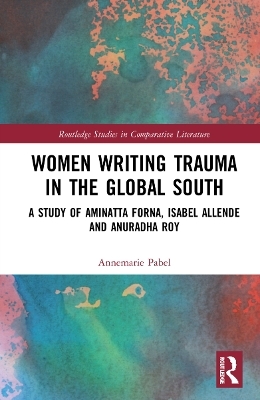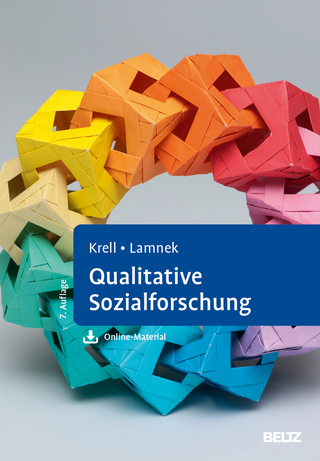
Women Writing Trauma in the Global South
Routledge (Verlag)
978-1-032-32469-2 (ISBN)
Through exploring complex suffering in the writings of Aminatta Forna, Isabel Allende and Anuradha Roy, Women Writing Trauma in the Global South dismantles conceptual shortcomings and problematic imbalances at the core of existing theorizations around psychological trauma. The global constellation of women writers from Sierra Leone, Chile and India facilitates a productive analysis of how the texts navigate intertwined experiences of individual and systemic trauma. The discussion departs from a recent critical turn in literary and cultural trauma studies and transgresses many interrelated boundaries of geocultural contexts, language and genre. Discovering the role of literary forms in reparative articulation and empathic witnessing, this critical intervention develops new ideas for an inclusive conceptual expansion of trauma from the global peripheries and contributes to the ongoing debate on marginalized suffering.
Annemarie Pabel is an independent researcher with a PhD in English literature. Her research interests include trauma studies and women’s writing.
Chapter One: Introduction - Concepts and Contexts of Psychological Wounding
Canonical Cultural Trauma Theory and Emerging Critical Perspectives
The Case for a Reconceptualization of Trauma
Wound Narratives from the Global South
Chapter Two: Aminatta Forna
Fictional Representations of Traumatic Disintegration in The Memory of Love
Prolonged and Insidious Trauma in The Devil that Danced on the Water
Narrative Critique of the PTSD Category in Happiness
Narrative Negotiations of a Context-specific Trauma Model
Complicated Witnessing in The Devil that Danced on the Water
Unempathic Gazing and Professional Witnessing in Happiness
Post-traumatic Resilience in Happiness
Chapter Three: Isabel Allende
Writing during Trauma in Paula
Fictional Representations of Childhood Trauma in Portrait in Sepia
Inscriptions of Trauma in Landscape: Exile and Mental Dislocation
Resurfacing Wounds in Storytelling
Epistolary Narration in Articulating Bereavement
Magical Realist Elements in Representing the Unspeakable
Photography as a Testimonial Practice in Portrait in Sepia
Narrating ‘Belonging’ in My Invented Country
Chapter Four: Anuradha Roy
Fictional Representations of Prolonged Childhood Violence
Topographic and Architectural Manifestations of Traumatic Unhomeliness in An Atlas of Impossible Longing
Familial Disintegration and Unhomeliness
Self-Awareness and Transgression of Forms in Articulating Trauma
Epistolary Elements and Narrative Authority
Chapter Five Conclusion - Connecting Trauma Narratives in the Global South
Inscriptions of Complex Wounds
Towards Conceptual Inclusivity
| Erscheinungsdatum | 17.08.2022 |
|---|---|
| Reihe/Serie | Routledge Studies in Comparative Literature |
| Verlagsort | London |
| Sprache | englisch |
| Maße | 152 x 229 mm |
| Gewicht | 453 g |
| Themenwelt | Geisteswissenschaften ► Psychologie ► Sozialpsychologie |
| Geisteswissenschaften ► Sprach- / Literaturwissenschaft ► Anglistik / Amerikanistik | |
| Geisteswissenschaften ► Sprach- / Literaturwissenschaft ► Literaturwissenschaft | |
| Medizin / Pharmazie ► Medizinische Fachgebiete ► Notfallmedizin | |
| Medizin / Pharmazie ► Medizinische Fachgebiete ► Psychiatrie / Psychotherapie | |
| Sozialwissenschaften ► Soziologie ► Gender Studies | |
| ISBN-10 | 1-032-32469-4 / 1032324694 |
| ISBN-13 | 978-1-032-32469-2 / 9781032324692 |
| Zustand | Neuware |
| Haben Sie eine Frage zum Produkt? |
aus dem Bereich


